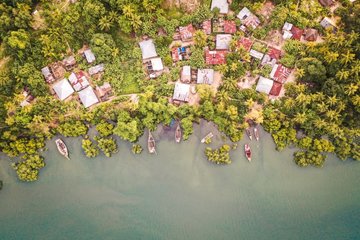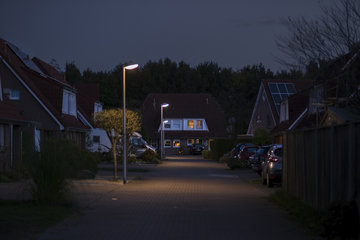The cautious path to a stable state
The violent conflict in Afghanistan has been escalating since 2005, making the process of reconstruction that much harder. To bring stability to the country, the focus must be on strengthening the state and facilitating the rule of law.
by Tilmann J. Röder; in: MaxPlanckResearch 2/09

One afternoon in 1998, Fahim, who would later become our driver, was walking through the district of Khair Khana in Kabul. The streets were quiet, almost empty. Under the Taliban, the people had withdrawn further and further into their own private lives. Every step outside could lead to trouble. Adherents of the Islamist regime confiscated cars in which music could be heard playing – such modern forms of entertainment were banned. They seized men whose beards did not seem to them to be long enough. Children were forbidden to fly kites. But women suffered the most. A bit of nail polish or a hint of perfume from beneath the burqa could arouse suspicions of prostitution and put them at risk of their lives. Many sank into poverty as the Taliban forbade them to take up any paid employment.
The inhabitants felt themselves oppressed and, not infrequently, were subjected to unrestrained random violence
That was the day on which Fahim’s life changed abruptly. He saw something he had often seen before: a Taliban cursing and beating a woman in broad daylight. Fahim walked past – then turned around. In contrast to normal procedure, the Taliban was alone. No one else was in sight. Even as Fahim struck the blow, so he has told me, he knew that he would have to leave Kabul. In a city of only a few hundred thousand inhabitants, the risk of another encounter with the bully from whose clutches he had rescued the woman was too great. He remained in Iran until the Islamists fell from power.
Fahim’s fate says something about the relationship between rulers and the ruled at that time. The Taliban did not govern in accordance with generally accepted rules. The Shari’a may have prevailed as their supreme law, but their radical fundamentalist interpretation of it had little in common with Afghanistan’s liberal Islamic tradition. Even these rules were not applied uniformly by the Taliban, but were enforced by each individual as he saw fit. The inhabitants felt themselves permanently oppressed and, as in the case of the woman rescued by Fahim, were not infrequently subject to unrestrained random violence.
There were no instances of self-regulation anchored in law within the ruling order, no judges to control the exercise of state power. If he was to help the woman, Fahim had no other choice than to intervene himself. Afterwards, it would not have been sensible to remain in the country. In reality, many Afghans had welcomed the Taliban with relief in 1996; after years of civil war, they promised a return to tranquility. People at that time had no idea just what an impact their fundamentalist interpretation of Shari’a would have on life.
What happened to the country after September 11, 2001 is well known: The US government drove out the Taliban, whom they had once supported, with the aid of the same warlords who, in the mid-1990s, had devastated the country. This transfer of power was also welcomed by the population – but once again, their hopes for a swift and sweeping improvement in their living conditions were dashed.












